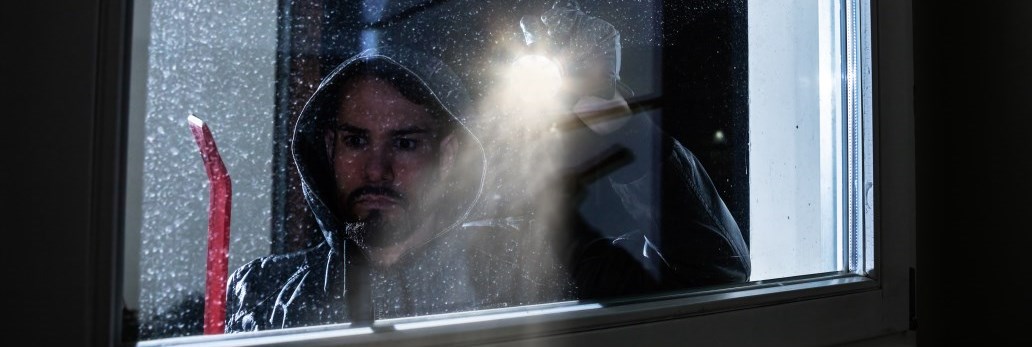CAMSafe
The Greater Sudbury Police Service is pleased to announce a partnership with CAMSafe, a web-based, voluntary registry of CCTV and security cameras, to help solve crime more efficiently.
CAMSafe is a web-based, volunteer registry for anyone who owns security cameras, CCTV systems or doorbell cams in the province of Ontario. CAMsafe is an effective tool that saves officers precious time when conducting investigations.
This program was developed to act as a simple, yet effective way of leveraging technology and encourages residents and business owners to help protect their communities and solve crime.
Register your security camera
Business
Businesses that appear neglected can become targeted by thieves and vandals.
| Tips for Business Owners: |
- Do a thorough cleaning of windows and floors and log when it was done so that investigators will have a timeline to work with if a break-in happens
- Remove all valuables from storefront displays
- Remove all cash from tills and leave open with the cash tray out and visibly empty
- Ensure alarm systems are working and all contact lists are up to date
- Post on doors/windows that the premises are monitored by an alarm company and that no money is kept on the premises
- Consider a surveillance system which can be monitored remotely by phone/online
- Consider putting a laminate on all windows/glass to discourage and help prevent easy entry
- Keep some lighting on inside to help with video surveillance and consider lighting on timers if possible
- Ensure all doors and windows are locked and secure
- Ensure all exterior lighting is functioning and on — consider motion sensor lights as another option
- Remove anything on the exterior which could be used to gain entry to your premises (bricks, ladders, poles, construction materials)
- Regularly check the building and keep track of when you check (have a log) but go at different times
|
If you are a business owner and have experienced a break and enter to your business, call us at 705-675-9171.
If you are a business owner and have noticed vandalism to your business (i.e. broken window) please report it online by filing a Mischief to Property report.
If community members witness suspicious persons or activity around closed businesses, please contact Police at 705-675-9171 or Crime Stoppers at 705-222-8477 (TIPS).
For a crime in progress, call 911
Residential
Your home is your sanctuary. Make sure you take the necessary precautions to protect it.
If buildings and properties can be designed to reduce damage from storms, natural disasters and the elements, then they should also be designed to prevent crime.
Crime Prevention Through Environmental Design (CPTED) is a philosophy that encourages the use of designing your home or business in a way that impedes criminal behaviour such as theft, vandalism, or burglary.
You can reduce the risk to your family, home and valuable contents by implementing some home security safety tips.
|
CPTED Tips:
|
- Install fencing with a secure lockable gate to clearly define your property and prevent easy access to the back of your home
- Install solid-core doors on all exterior doors with deadbolt locks
- Make sure your doors feature wide-angle peepholes at heights everyone can use
- Secure all sheds and outbuildings, making sure they are visible from your home
- Keep windows locked and use a screw or block so they can't be lifted
- Ensure shrubbery is kept neat and trimmed so there is an unobstructed view (thick shrubs are a great hiding spot for thieves)
- Exterior doors should be solid, not hollow. Metal doors provide the best protection against forced entry.
- Use a fencing style that won't conceal a burglar's activities. Remember, if you can't see out, others can't see in.
- Secure any glass that is less than 100 cm or 40 inches from a door lock. Either coat exterior glass with an acrylic or polycarbonate to strengthen, or replace it with laminated or tempered glass.
- Door hinges that are on the outside should have a non-removable centre pin that can't be tampered with.
- Place hinged security bars over basement windows. Remember to keep the key nearby in case of emergency.
- Pin sliding patio doors together when closed. Another easy security step is to drill a hole in the upper track and insert a screw that extends out into the runner to prevent the door from being lifted up and out of its track.
- Illuminate as much of your property as possible. Ensure there are no dark areas around the house, garage, or yard that could hide prowlers at night
- Always keep your doors locked (front, sides, back and garage) and do not post a note indicating that you are not home
- Invest in bright security lighting and exterior motion-censored lights
- Consider purchasing a home security system including an alarm system and video surveillance camera
- Ensure your house number is clearly displayed so police and other emergency personnel can locate your house/business quickly
- Arrange for your lawn to be mowed or driveway to be shovelled if you'll be away for an extended period of time
- Be a good neighbour and keep an eye on your neighbour's residence, especially if you know they will be out of town
|
| Additional Safety Tips: |
- Close blinds and curtains at night so that a burglar can't scope out your belongings.
- Lock all doors and windows before leaving your home.
- Lock windows so that they can't be opened from the outside. If they can't be locked, you can pin them by drilling a hole through both window frames and inserting a bolt or metal pin. The pin must be easily removable in emergency situations.
- Make your home look occupied at all times.
- Consider marking or engraving your valuables with a unique identifier known only to you.
- Take an inventory of your home on a videotape and/or in photographs.
- Keep jewelry in a safety deposit box or an unlikely place (e.g., not in your bedroom).
|
| What NOT to do: |
- Don't install a nameplate outside of your home with your full name. A burglar can use this information to find your number in the phone book and call to see if you are home.
- Don't leave a note on the door or in the mailbox telling a friend or family member that you aren't home.
- Don't leave spare keys in an obvious place such as the mailbox or under a door mat.
- Don't leave cash and handbags in plain sight in your home.
- Don't leave any doors unlocked when you are at the other end of your home or in your yard.
- Don't post vacation plans on social media, or advertise the new expensive items you just purchased on social media.
- Don't allow deliveries of mail, newspapers, flyers or parcels to build up while you are away.
|

 I Want To
I Want To





 Subscribe to this page
Subscribe to this page